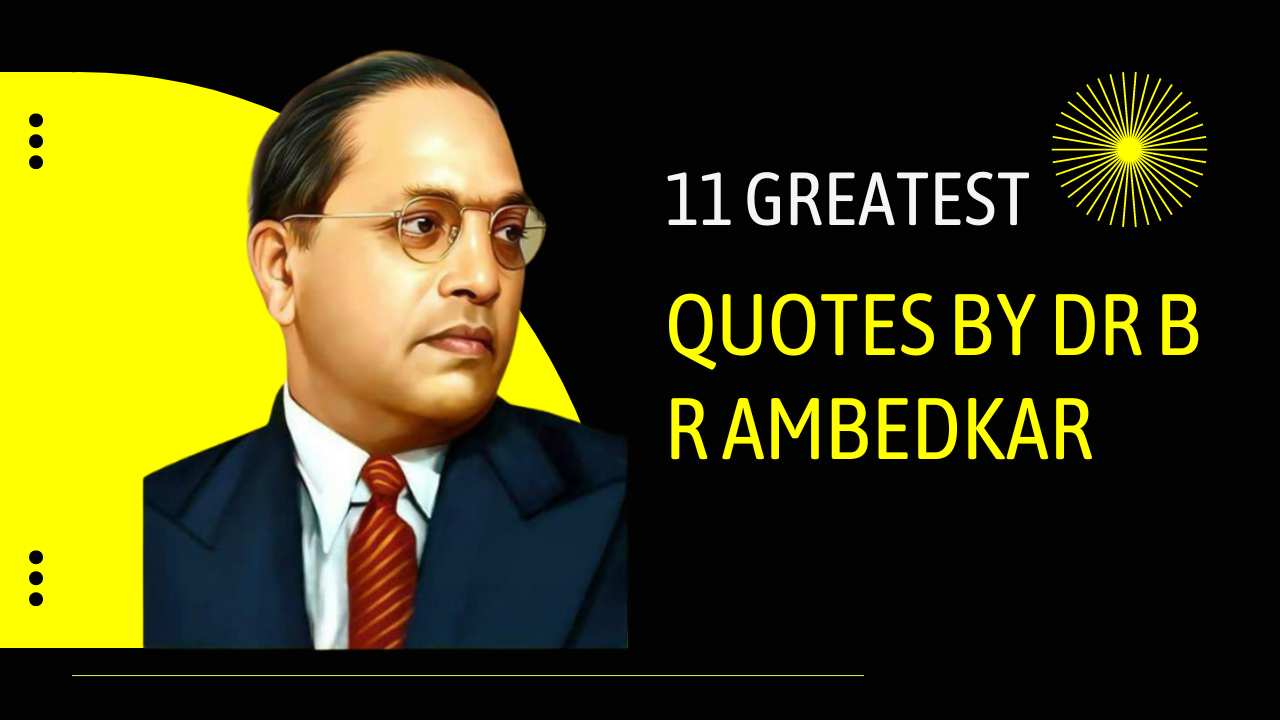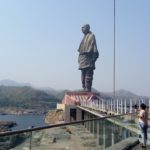DR BR Ambedkar’s death anniversary is celebrated annually on December 6. Here’s a glimpse at some of his most inspiring quotes to uphold his memory and values.
India observes December 6 as Mahaparinirvan Divas to mark the death anniversary of Dr. Bhimrao Ramji Ambedkar, the father of the Indian Constitution, who was born on April 14, 1891.
Fondly known as Babasaheb, he fought for the economic and social empowerment of Dalits in the country, eradicating the social curse of untouchability and fostering gender equality.
He was also among the seven members of the drafting committee who prepared a draft of the Constitution of independent India.
On his death anniversary, here’s a look at some of his inspiring quotes to commemorate his memory and uphold the values he strongly believed in.
1. “Be educated, be organized, and be agitated.”
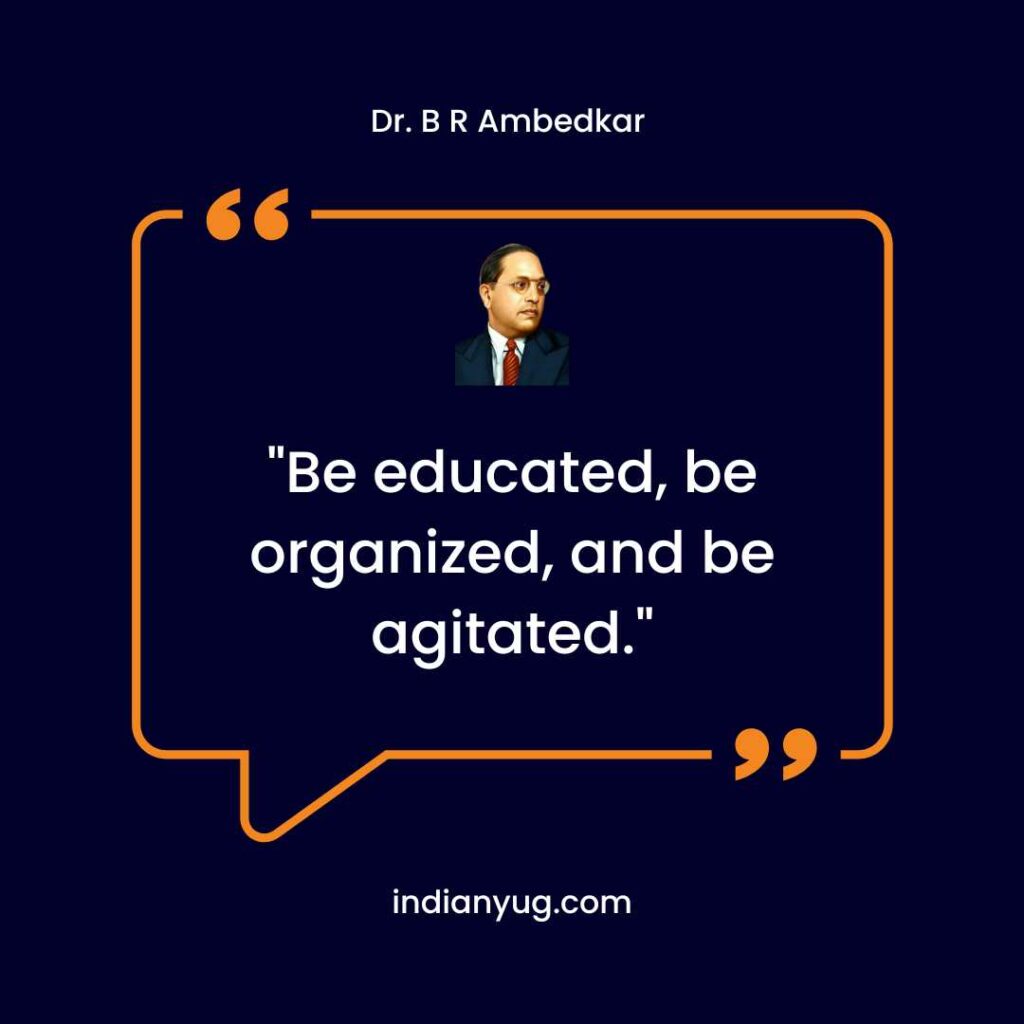
2. “Equality may be a fiction but nonetheless one must accept it as a governing principle.”
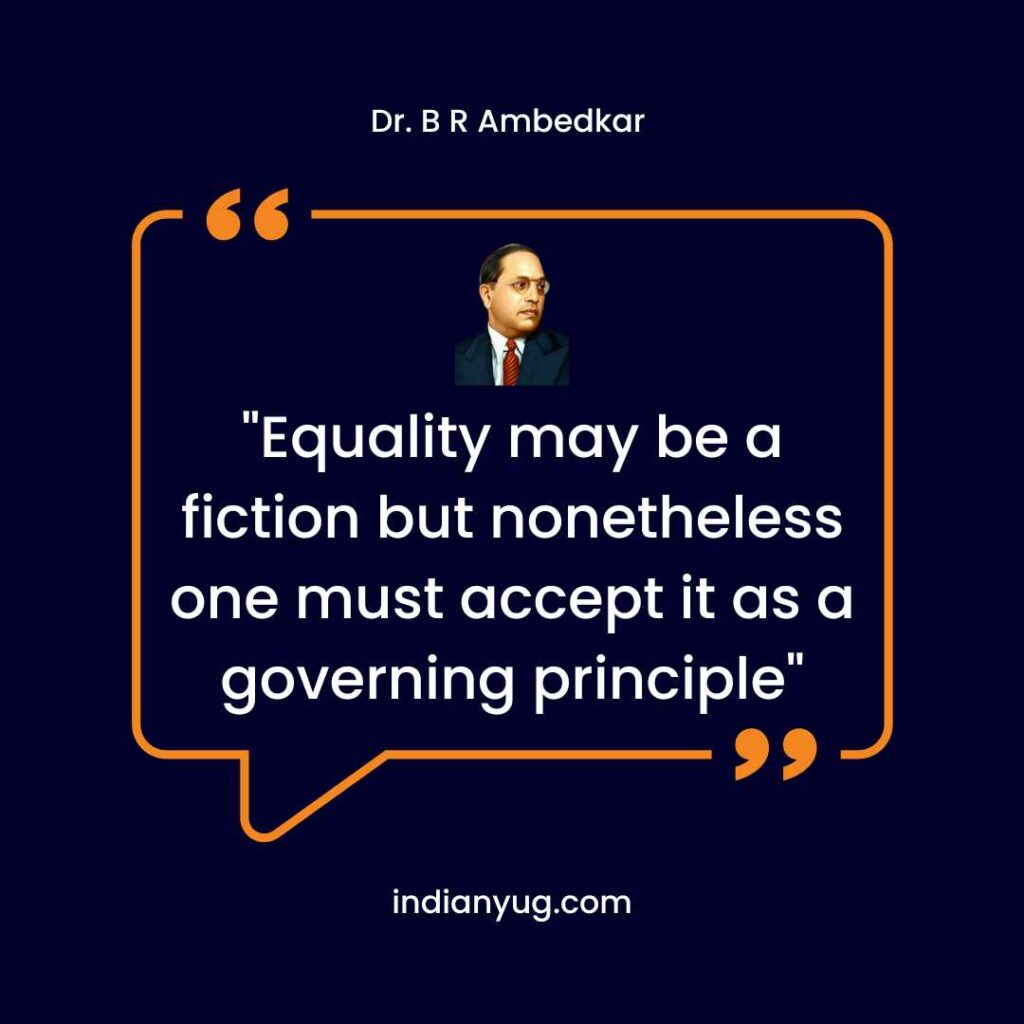
3. “Humans are mortal. So are ideas. An idea needs propagation as much as a plant needs watering. Otherwise, both will wither and die.”
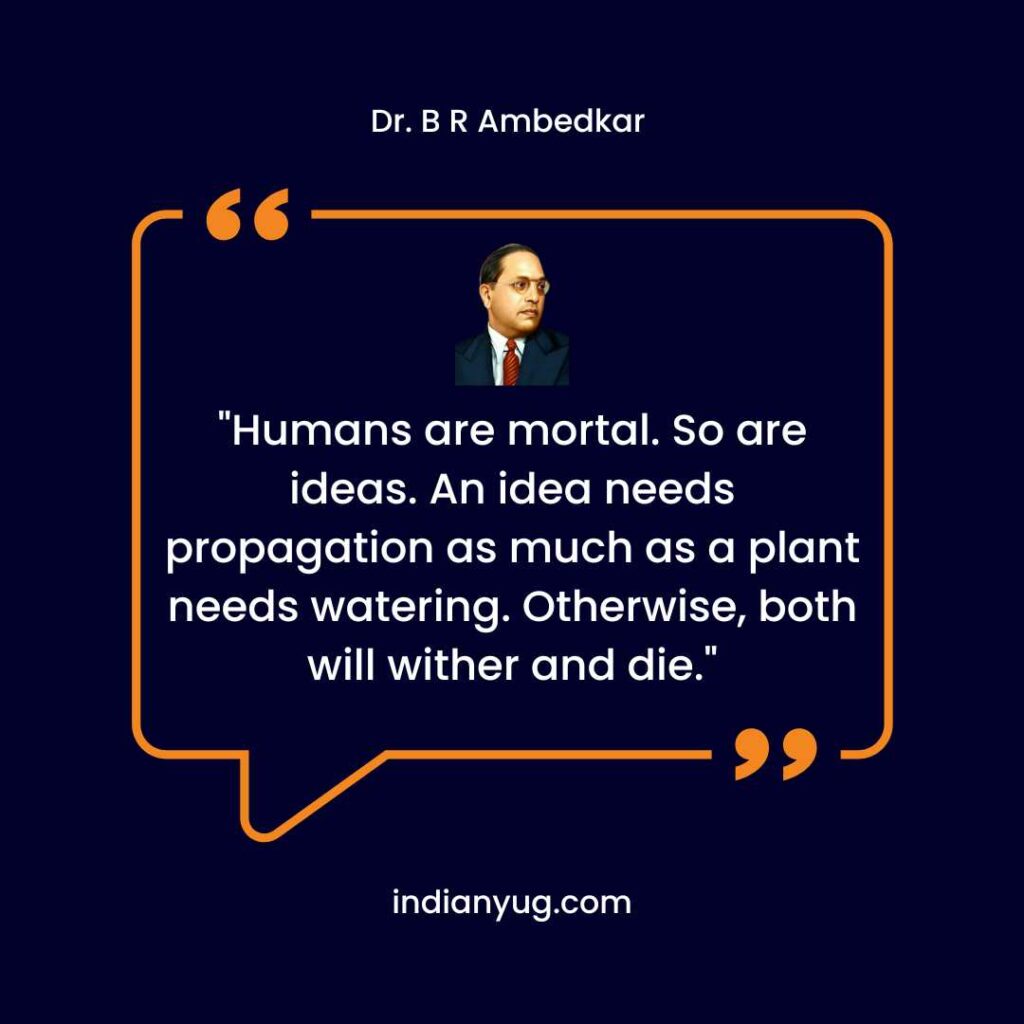
4. “I like the religion that teaches liberty, equality, and fraternity.”
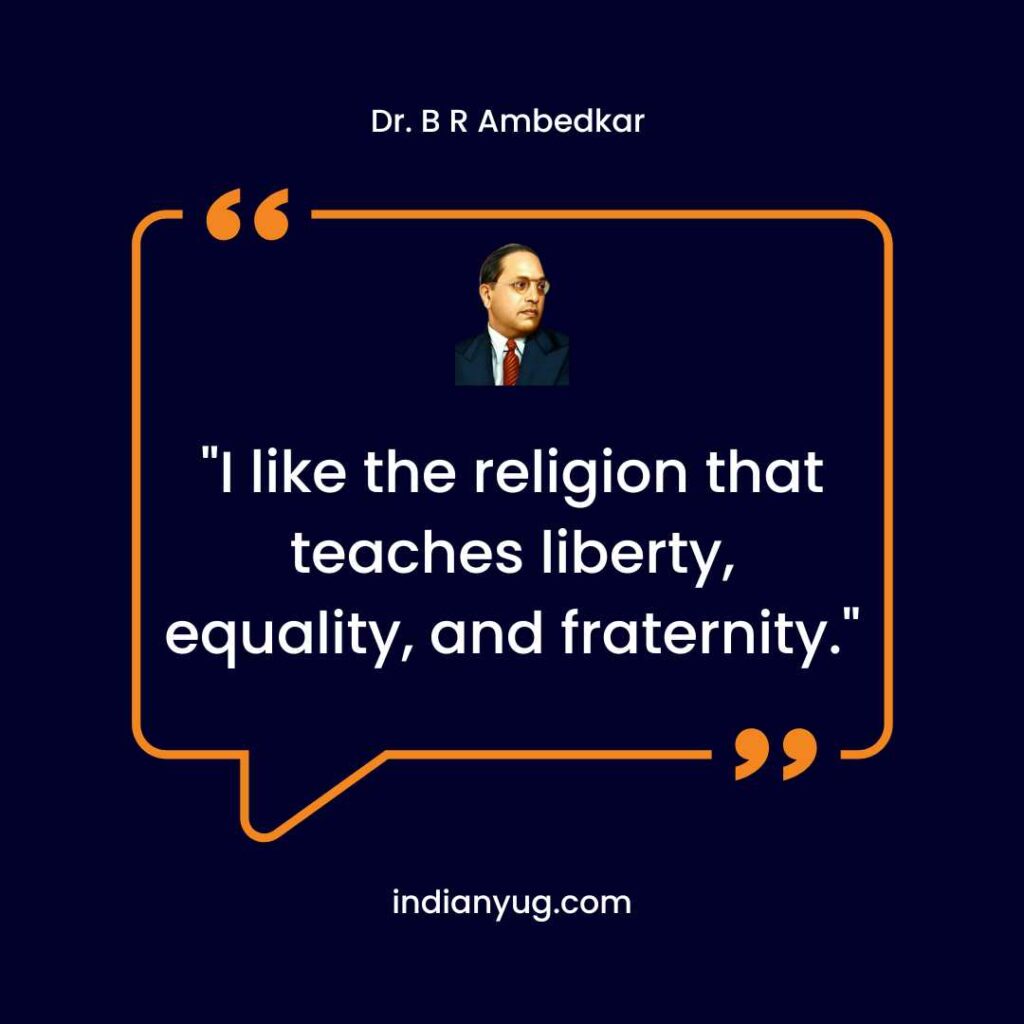
5. “Law and order are the medicine of the body politic and when the body politic gets sick, medicine must be administered.”
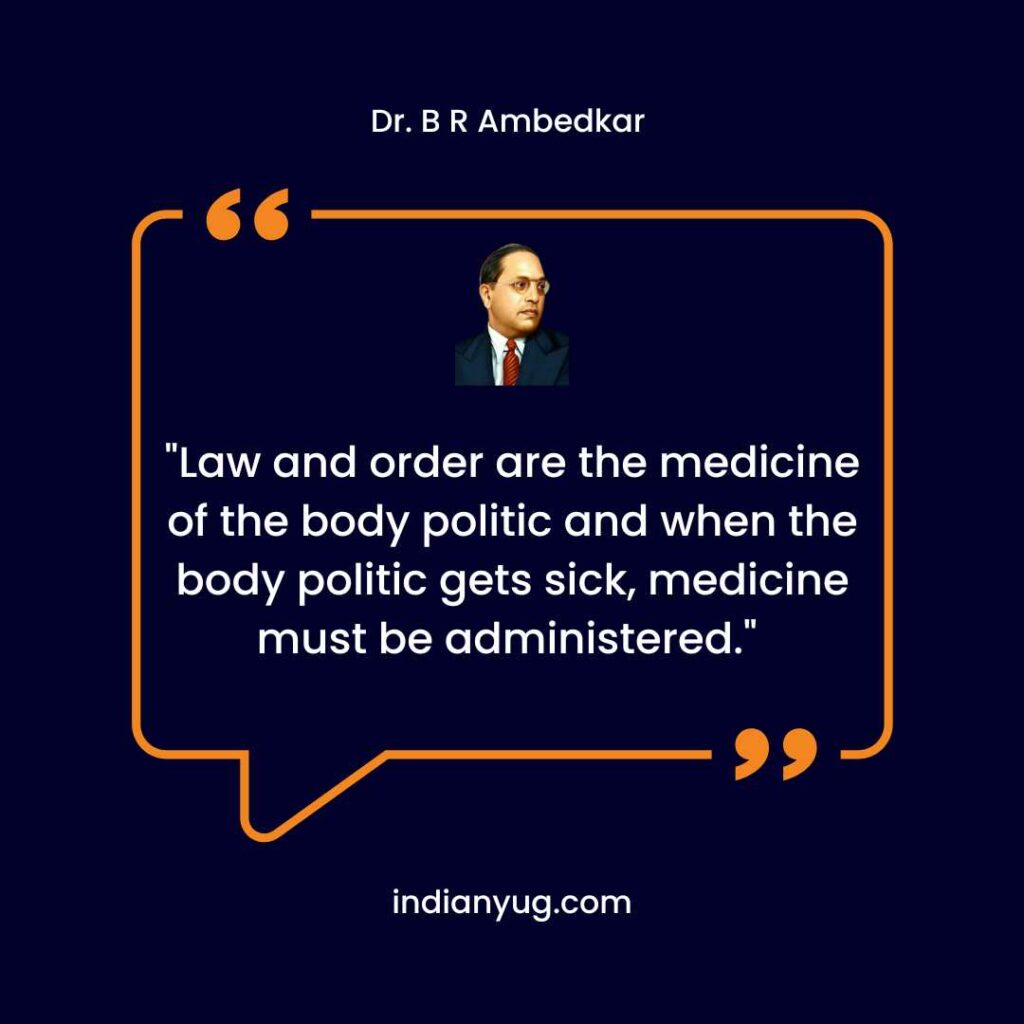
6. “Every man must have a philosophy of life, for everyone must have a standard by which to measure his conduct. And philosophy is nothing but a standard by which to measure.”
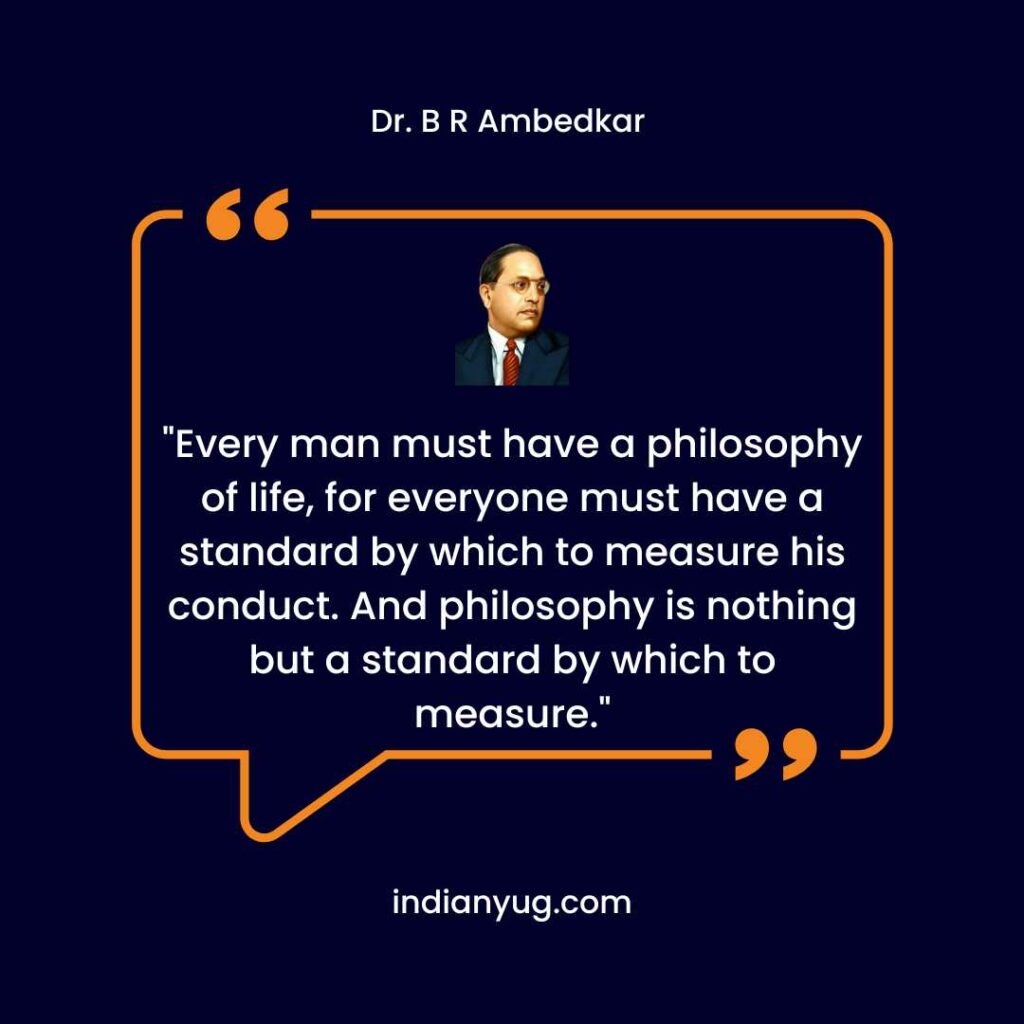
7. Unlike a drop of water which loses its identity when it joins the ocean, man does not lose his being in the society in which he lives. Man’s life is independent. He is born not for the development of the society alone, but for the development of his self.”
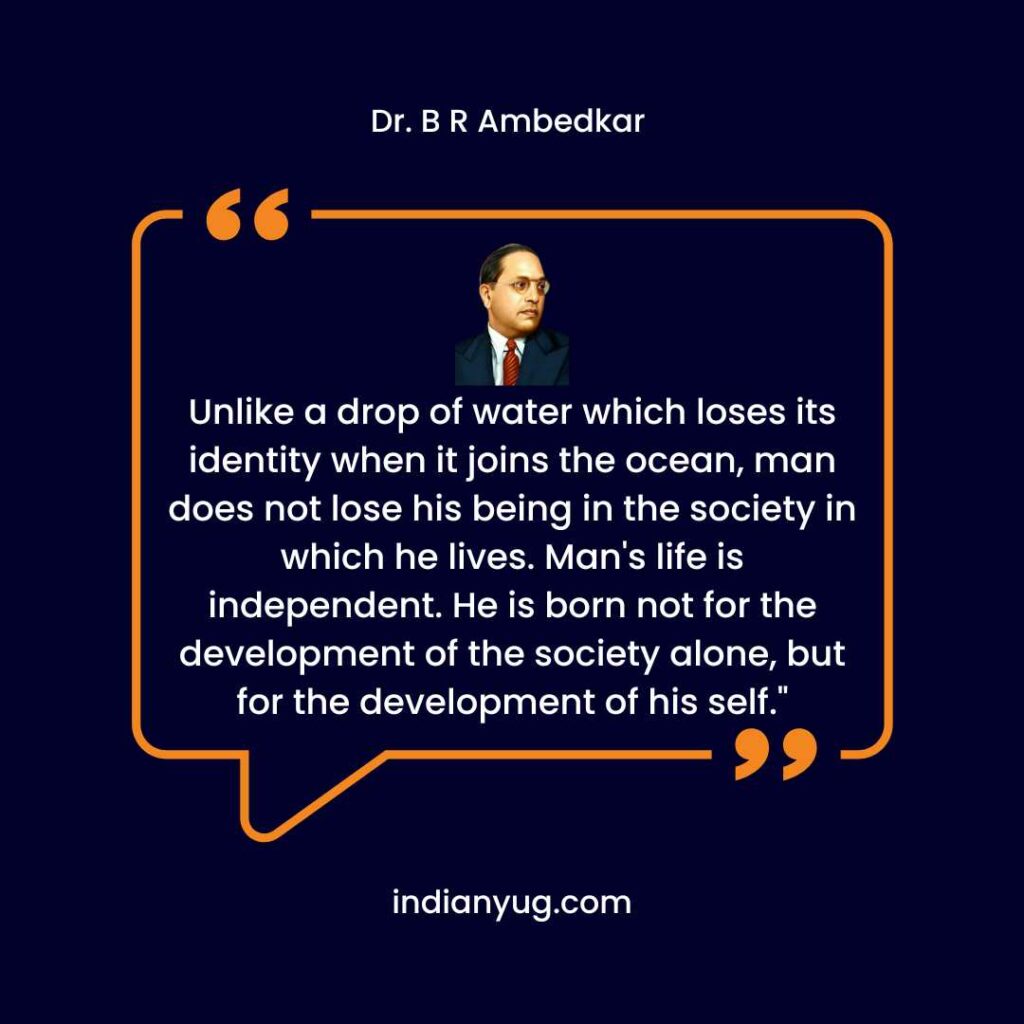
8.”I measure the progress of a community by the degree of progress which women have achieved.”
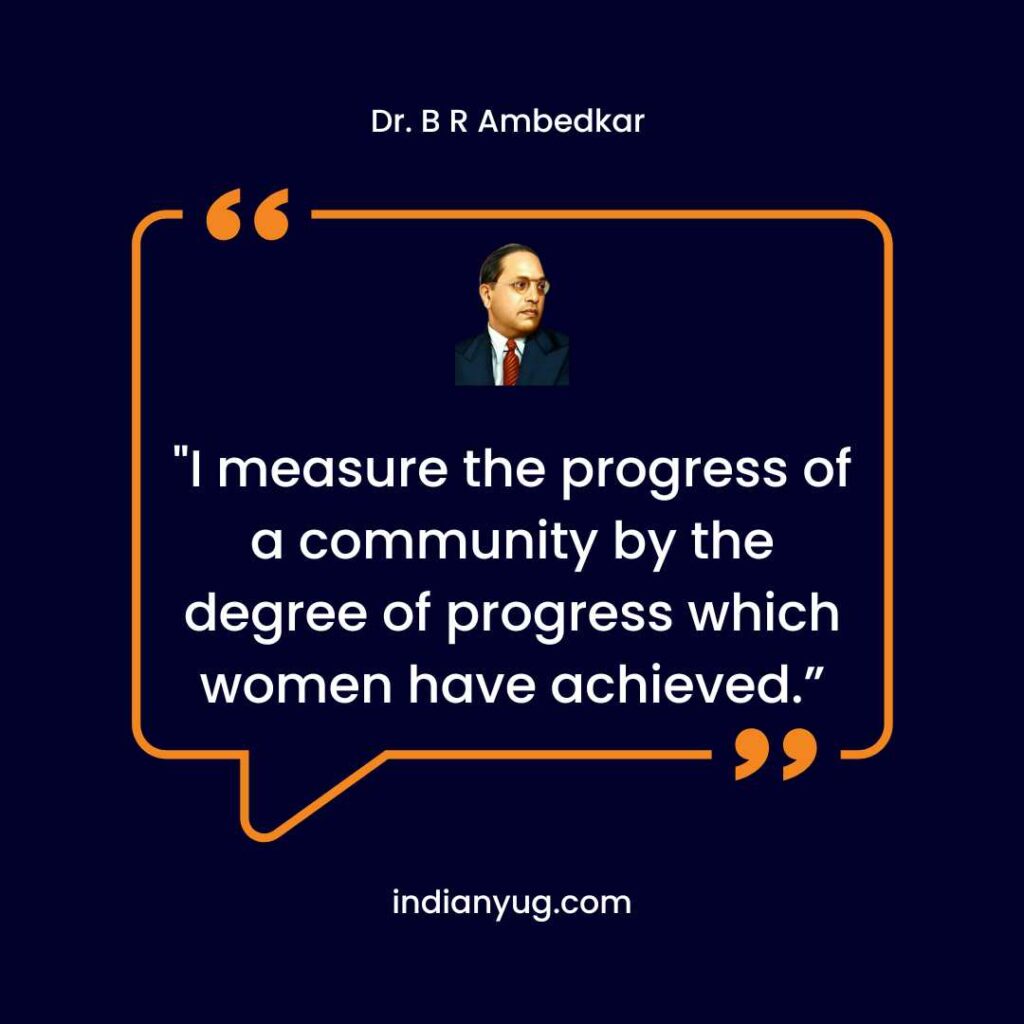
9. “For a successful revolution it is not enough that there is discontent. What is required is a profound and thorough convictionof the justice, necessity and importance of political and social rights.”
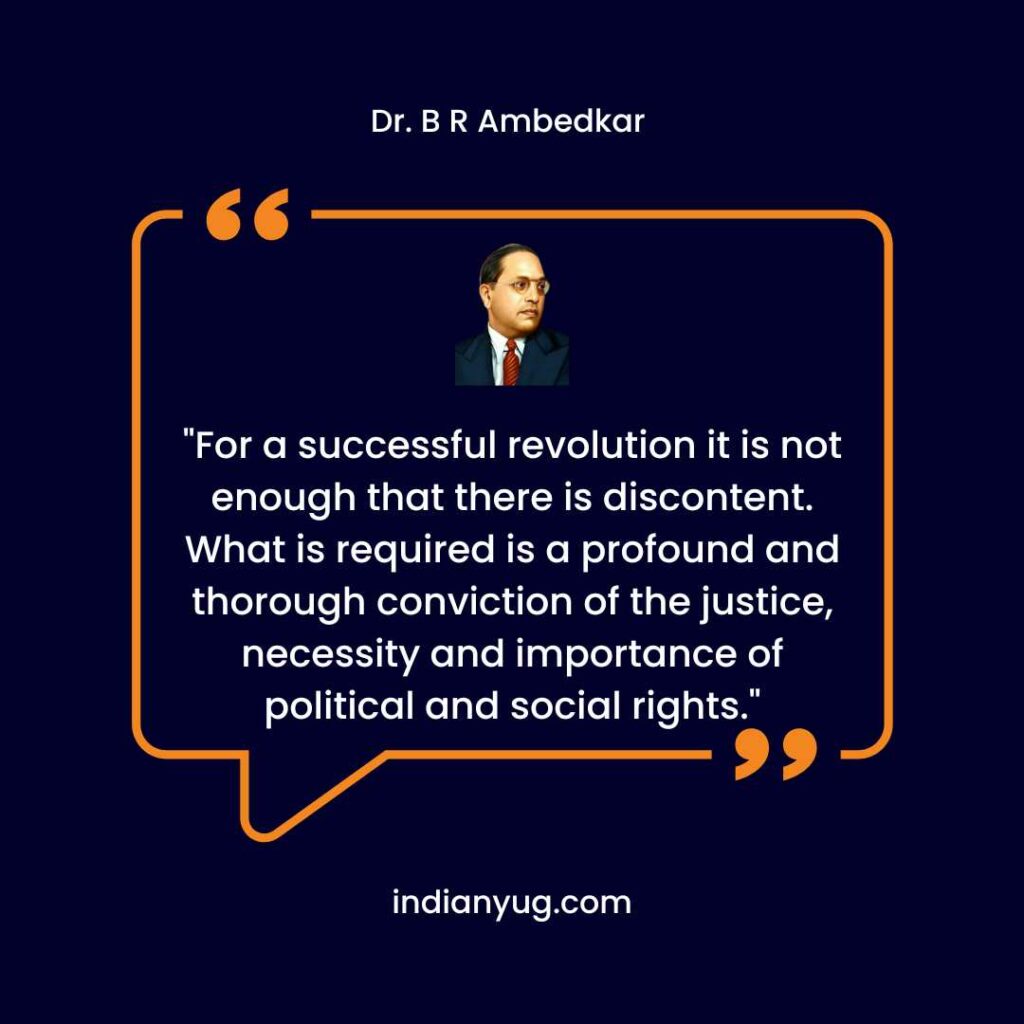
10. “So long as you do not achieve social liberty, whatever freedom is provided by the law is of no avail to you.”
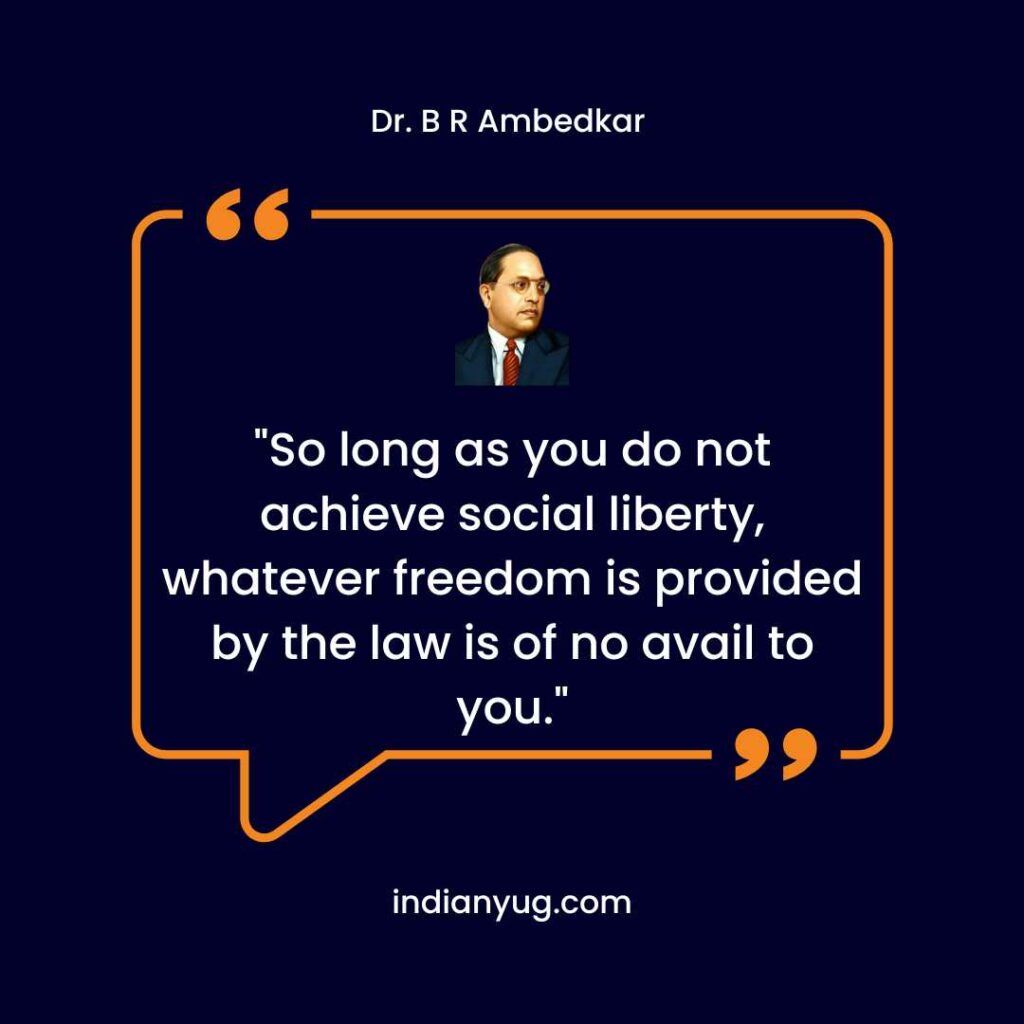
11. “Political tyranny is nothing compared to the social tyranny and a reformer, who defies society is a more courageous man than a politician who defies Government.”
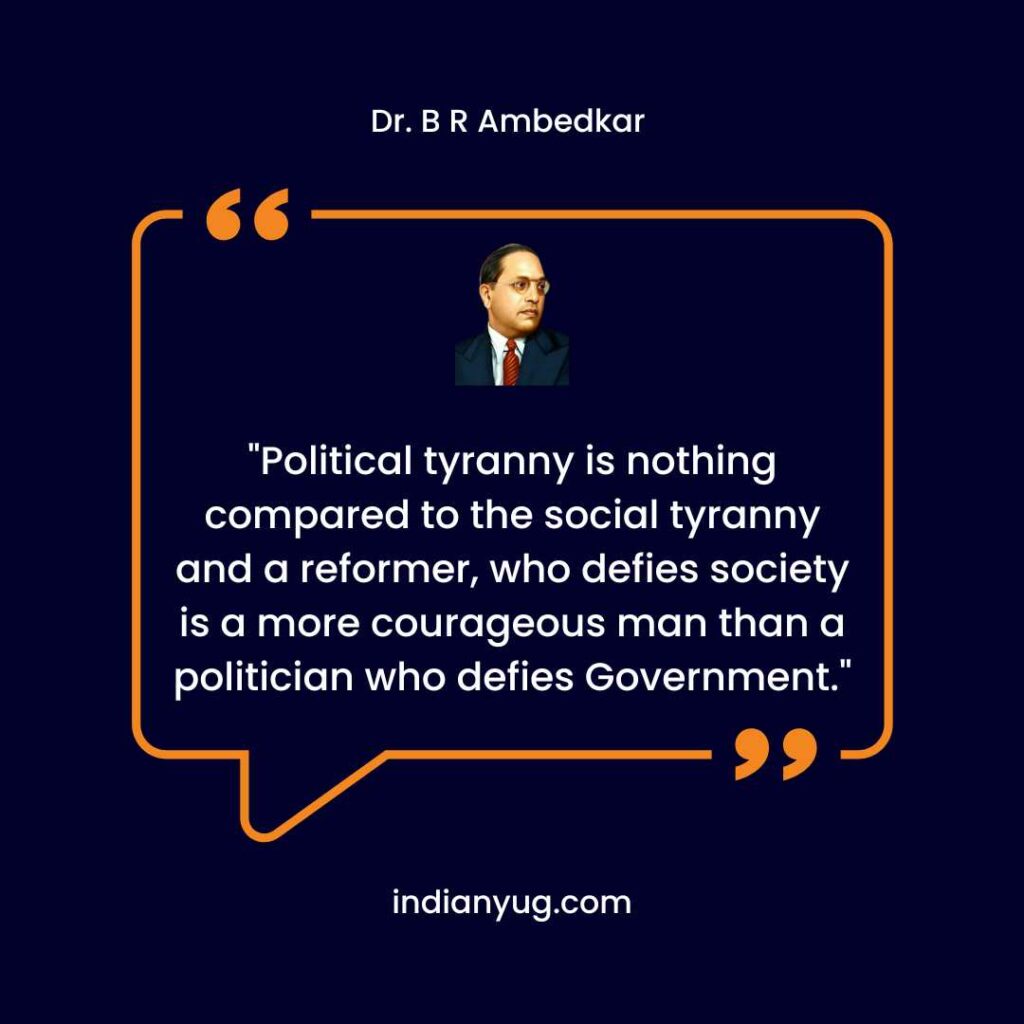
His life was marked by his political activities — he became involved in campaigning and negotiations for India’s independence, publishing journals, advocating political rights and social freedom for Dalits, and contributing significantly to the establishment of the state of India.
In 1956, he converted to Buddhism, initiating mass conversions of Dalits.
